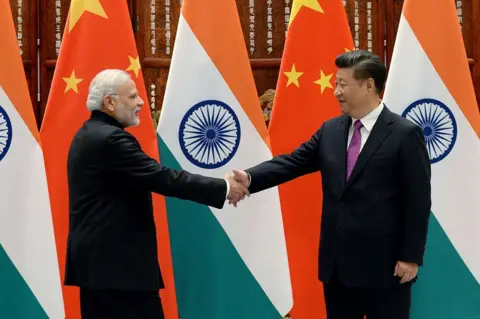The Indian government has recently made it clear that it will pursue legal action against Sotheby's in Hong Kong if they proceed with the auction of jewels believed to be connected to Buddha’s remains. The scheduled auction on Wednesday showcases gems that were buried with important relics centuries ago and are claimed by many to be sacred. The Ministry of Culture has argued that the auction violates both Indian and international laws, as well as UN conventions, requesting their immediate return to India. The sale has raised alarm among Buddhists and scholars around the world, pushing India to publicly condemn the auction process.
An Instagram post from India's ministry pointed out that Sotheby's had acknowledged the matter in response to their legal concerns and assured full attention to the issue. The letter also highlighted the notion that the auctioneer, Chris Peppé—descendant of the original excavator, William Claxton Peppé—is not authorized to sell the relics and accused Sotheby’s of perpetuating historical colonial injustices. The relics in question were excavated near Piprahwa, now in Uttar Pradesh, where Peppé uncovered nearly 1,800 exquisite gems dating back almost 2,000 years.
William Peppé originally turned the relics over to colonial authorities, with a portion of the artifacts transferred to the Buddhist King of Siam and others sent to the Indian Museum in Kolkata. The remaining items claimed by Peppé’s family were described as “duplicates,” a term contested by the Indian ministry, which insists that these items are fundamentally part of India's cultural and religious identity and should not be seen merely as collectibles.
The ministry's statement emphasizes that the so-called custodians lack legitimate rights to sell the jewels and that their historical significance warrants respectful treatment rather than market commoditization. The ministry has demanded a public apology from both Sotheby's and Peppé, alongside full disclosure of the relics' provenance. Failure to comply may lead to intensified legal actions in both India and Hong Kong, along with public campaigns against Sotheby’s involvement in the potential sale.
Chris Peppé has previously indicated this auction may be the most transparent method for transferring ownership of the relics back to the Buddhist community. The gem collection has been part of major exhibitions, including a highlight at The Met in 2023, as the Peppé family advocates for their research and custodianship. Nonetheless, the Ministry of Culture stands firm in its stance, criticizing the family’s approach to handling these culturally significant items.
An Instagram post from India's ministry pointed out that Sotheby's had acknowledged the matter in response to their legal concerns and assured full attention to the issue. The letter also highlighted the notion that the auctioneer, Chris Peppé—descendant of the original excavator, William Claxton Peppé—is not authorized to sell the relics and accused Sotheby’s of perpetuating historical colonial injustices. The relics in question were excavated near Piprahwa, now in Uttar Pradesh, where Peppé uncovered nearly 1,800 exquisite gems dating back almost 2,000 years.
William Peppé originally turned the relics over to colonial authorities, with a portion of the artifacts transferred to the Buddhist King of Siam and others sent to the Indian Museum in Kolkata. The remaining items claimed by Peppé’s family were described as “duplicates,” a term contested by the Indian ministry, which insists that these items are fundamentally part of India's cultural and religious identity and should not be seen merely as collectibles.
The ministry's statement emphasizes that the so-called custodians lack legitimate rights to sell the jewels and that their historical significance warrants respectful treatment rather than market commoditization. The ministry has demanded a public apology from both Sotheby's and Peppé, alongside full disclosure of the relics' provenance. Failure to comply may lead to intensified legal actions in both India and Hong Kong, along with public campaigns against Sotheby’s involvement in the potential sale.
Chris Peppé has previously indicated this auction may be the most transparent method for transferring ownership of the relics back to the Buddhist community. The gem collection has been part of major exhibitions, including a highlight at The Met in 2023, as the Peppé family advocates for their research and custodianship. Nonetheless, the Ministry of Culture stands firm in its stance, criticizing the family’s approach to handling these culturally significant items.






















